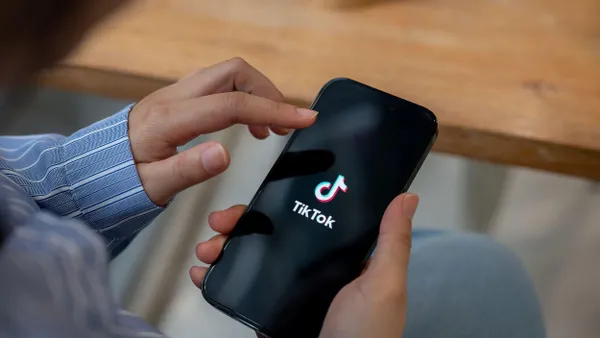Brief:
- Social media and video-sharing sites like Google's YouTube have overtaken word-of-mouth advice on buying personal technology products, per a survey from public relations firm Matter Communications. The percentage of U.S. consumers who use social media to discover technology more than doubled to 57% this year from 21% in 2018, the survey found.
- The portion of consumers who said they depend on friends and family to learn about personal technology plunged to 56% this year from 71% in 2018. That percentage is still higher than other sources of information including TV (42%), online tech review sites (36%) and lifestyle publications like GQ and Buzzfeed (17%).
- Consumers who received product recommendations and reviews from video-sharing sites more than doubled to 38% this year from 18% in 2018. Shoppers ages 18 to 29 are almost three times as likely to consult YouTube than consumers over 30, per the survey.
Insight:
Matter's survey indicates that makers of personal technology need to have a social media and online video strategy to help inform consumers about their products. Eighty-three percent of consumers check online reviews before making a purchase, the survey found, making such information a key part of product marketing. The reliance on these platforms for advice underpins the social influencer industry as consumers seek accurate information from sources who are relatable and trustworthy.
The reliance on video content is especially significant, considering that 71% of consumers now watch how-to videos for instruction about products, a 44% gain from 2018, according to the study. For brands that want to control their image and avoid customer dissatisfaction with their products, creating video demonstrations can help to manage the expectations of consumers and avoid the expense of processing product returns or time spent with help desks and live customer support. Among content categories, consumers like videos about product hacks and tips (39%), reviews (39%) and unboxing (21%).
Social consciousness is another key product attribute that reinforces consumer purchase decisions. Consumers care when brand demonstrate sustainable and ethical sourcing (50%), charitable donations (43%), diversity and inclusion (42%) and a stand on social or political issues (30%). That finding supports other research showing that more than half (54%) of U.S. consumers consider themselves to be socially conscious shoppers, while about two-thirds (63%) prefer to buy holiday gifts from brands that support specific social causes, per a survey by software firm SAP.
Makers of tech products have been criticized for a lack of social awareness, including insensitivity to worker conditions in factories where their products are assembled. But tech companies also have worked to improve their image to appeal to socially conscious consumers. For example, Apple and Google, whose mobile operating systems power most of the world's smartphones, in the past year responded to growing concerns about the negative effects of technology on mental health with features to help mobile users manage their screen time.












